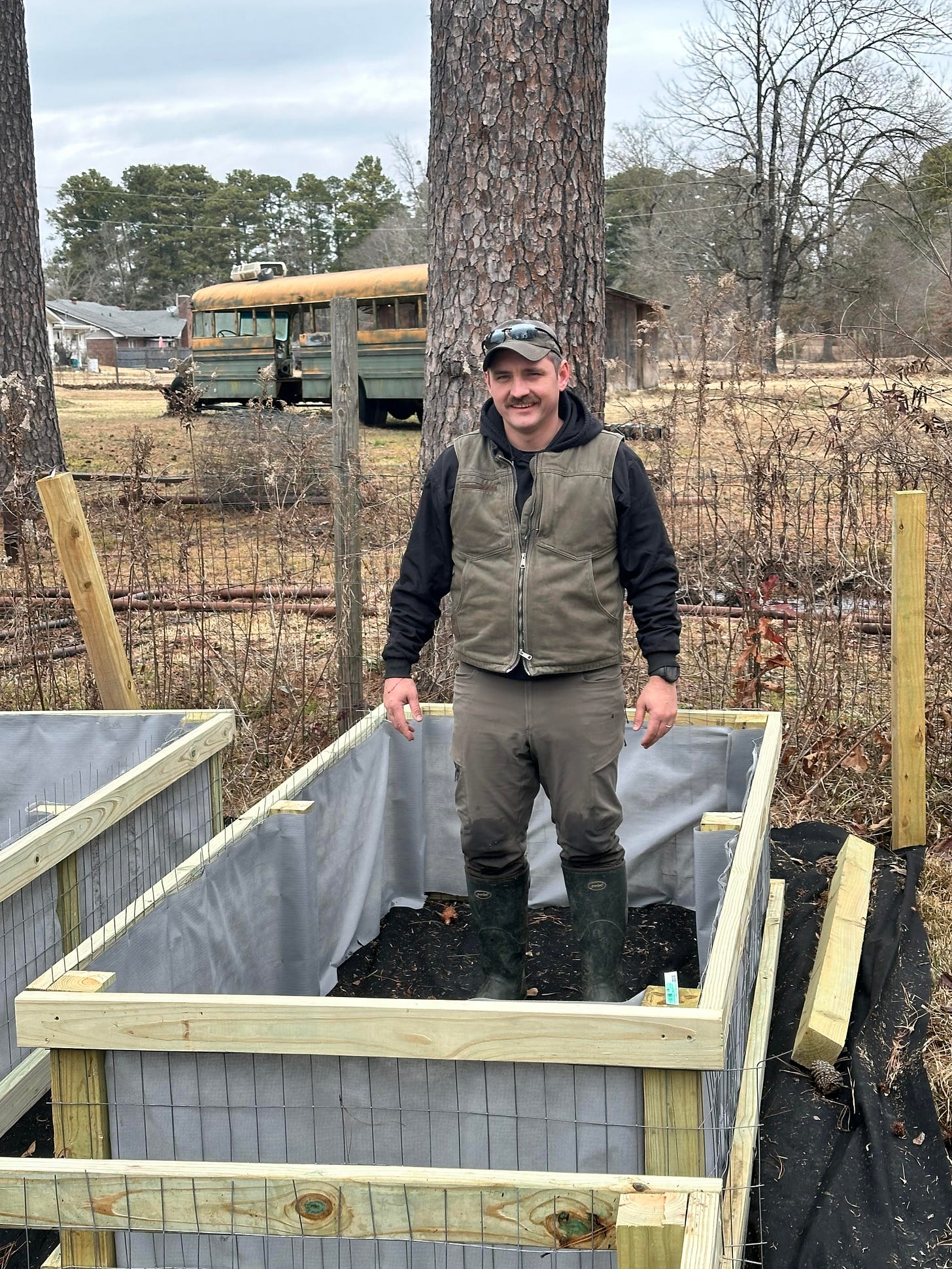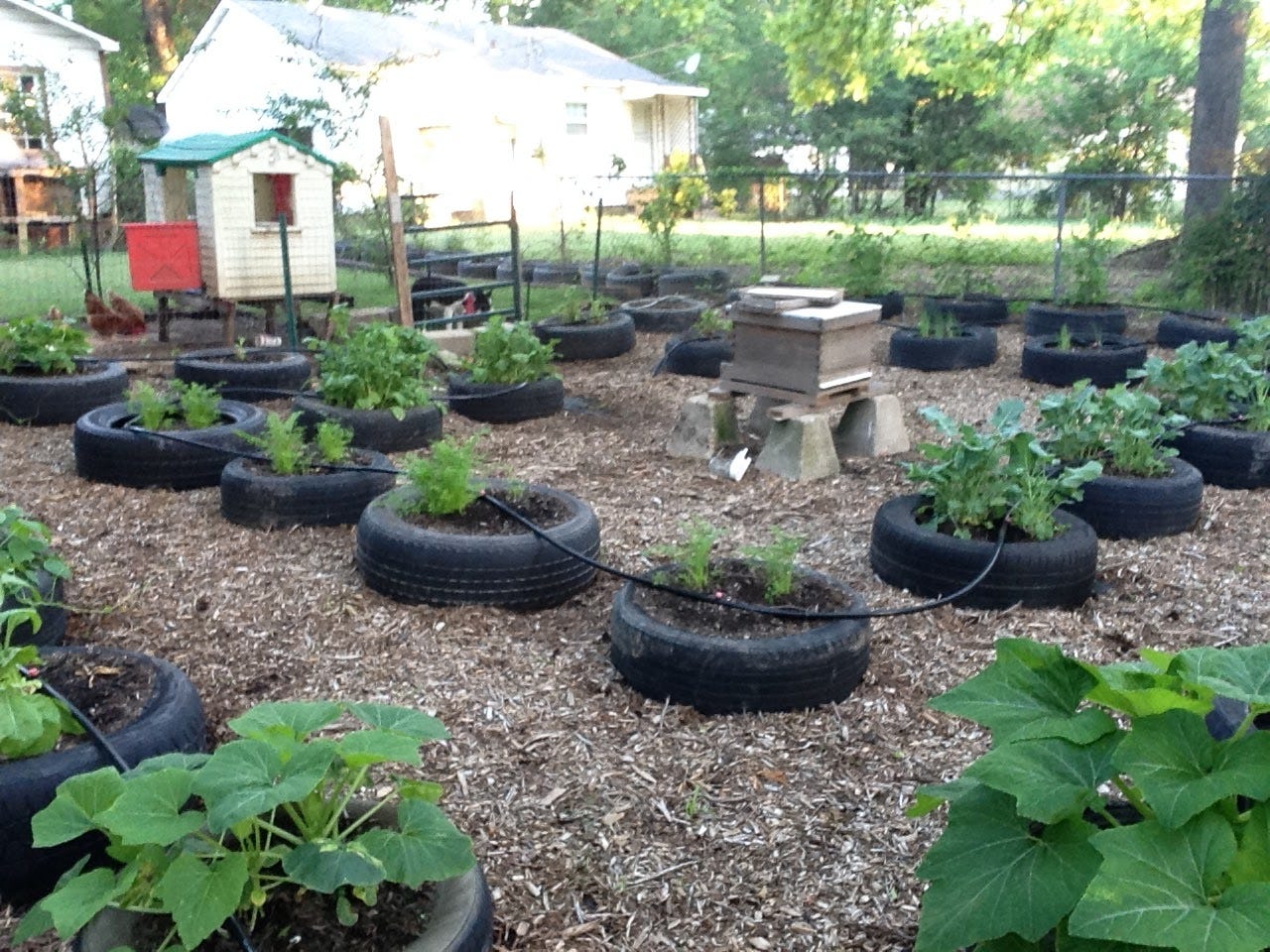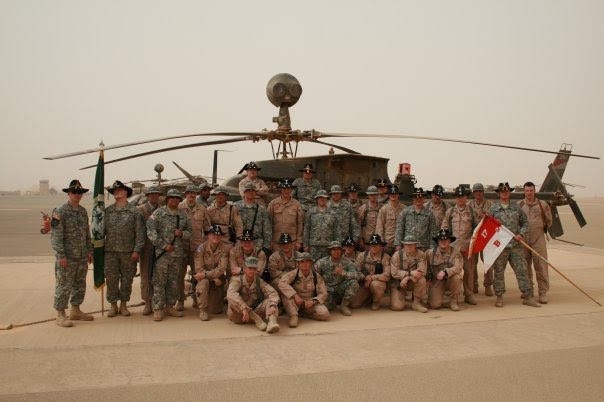My breath rolled out of my lungs and formed crystalized air. The cold cut in every direction. While common in many parts of the country, single-digit temperatures create an apocalypse in east Texas. Yet, the relentless march of spring requires a commitment from all farmers and gardeners to be ready to plant when the soul-etching winds of winter subside.
“What are the dimensions again?” Larry asked as we laid out another cockeyed planter box. His question carried the hints of a joke that came at my expense. As I looked at the oversized, misshapen box, I realized that escaping ridicule was not only impossible but undeserved. I never seemed to be good at either math or construction anyway.
My father-in-law, busy stapling in weed barrier fabric in a finished box, made a comment about the math skills that I acquired through the Arkansas education system. Since each of us hailed from different places, highlighting the inferiority of our home states provided a distraction from our cold, wet reality. Though painfully true, the humorous distraction provided a blanket of emotional warmth on the frigid day.
Years ago, I created a large, productive garden. The highlight of my day came from walking the cleanly cut, well-organized paths between planters made from discarded tires and inspecting my future food as it grew. I don’t know which provided more satisfaction, the crispness of the vegetables, or the knowledge that I could feed myself apart from society's efficient factory farms.
However, I abandoned that garden when work took me to the other coast. Every morning, I pour my coffee and look out the back door, hoping to see my old garden in places that it never existed. Finally, after years of living in locations that forbade self-reliance, I would soon have my old garden back, new and upgraded.
Cicero once said, “If you have a garden and a library, you have everything you need.” While the garden obviously feeds the body and the library the mind, when used together the two can simultaneously nourish the soul. Through the shared adversity and benefits of gardening (vegetables or otherwise), a framework is constructed to hang the sheetrock and wallpaper of quality conversations and experience.
Adversity: Brotherhood’s Soil
My best friendships never arose from mutual interests and good times but rather from challenges and pain. When it comes to forging unbreakable bonds between two men, it seems God works as a blacksmith, welding two pieces of iron together as he heats and hammers the two strong, independent pieces on the anvil of work and hardship.
From military adventurism far from pleasant society to building a garden in the cold, soggy mud of an east Texas winter, the principle of adversity remains true. Men need a cause to rally around in order to coalesce and form the bonds of brotherhood. We men are purpose-built to shoulder suffering and to grow together through it.
Perhaps risk aversion and laziness are the most egregious sins one man can commit. These two behaviors deprive others and oneself of the benefit of growing in this way. Neither the community nor the man will ever learn from the unique perspective of the man, and the man will never experience the value of shared suffering with other men in his community. We as a society inflict undue destruction on our men and boys by making it sweet and easy. Men need adversity.
Humility: Brotherhood’s Water
No two men are the same. Their life experiences, abilities, studies, proclivities, and interests vary as widely as their height and hair color. The task at hand sorts each and every person based on these attributes as a river sorts sentiment. Some tasks render a man as a massive boulder, and the other men silt in around him. However, other tasks do the reverse.
It is the mark of a young man to seek to establish dominance over others. He searches for confirmation that he can overcome his fears and that he has what it takes to meet life’s challenges. In that struggle, comparison besets him, and he seeks to establish himself as better than anyone around him. We call this man a “one upper” and he is annoying on his best day.
However, the mature man knows himself and seeks to find the place where he can provide the most value. He neither seeks dominance to soothe his own ego nor does he underserve the greater good with false humility. Instead, with the self-awareness only adversity can bring, he allows the task at hand to leverage his uniqueness for the greater good. We call this man “humble”.
Sharing Meals: Brotherhoods Seed
From polystyrene-plated rice and chicken wings in Afghanistan to my wife’s smoked turkey sandwiches around our kitchen table, meals provide a place of celebration for men at work. Inquire about the work of any man who diligently bled and sweated alongside his brothers for a cause that demanded much, and he will inevitably share stories of food and drink tied to the experience.
Humble men in adverse situations gravitate to the dinner table, not for the gluttony of much-needed nourishment but for the laughs, stories, and conversations. Men often do not realize that this is the point of their labor. They don’t understand that they work hard at their share of the task to validate their place at the dinner table.
Good teams always eat together, and those who do not participate encounter animosity. This is because the meal is the point of the labor in the first place. Those who don’t enjoy the spoils of the shared lunch break, beer after work, or the traditional bullshiting while trading MRE accouterments separate themselves from the whole selfishly. They rob the whole of their uniqueness and encounter well-earned antagonism.
Don’t be that person.
Hone the Edge.




















